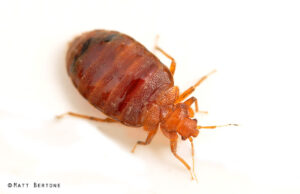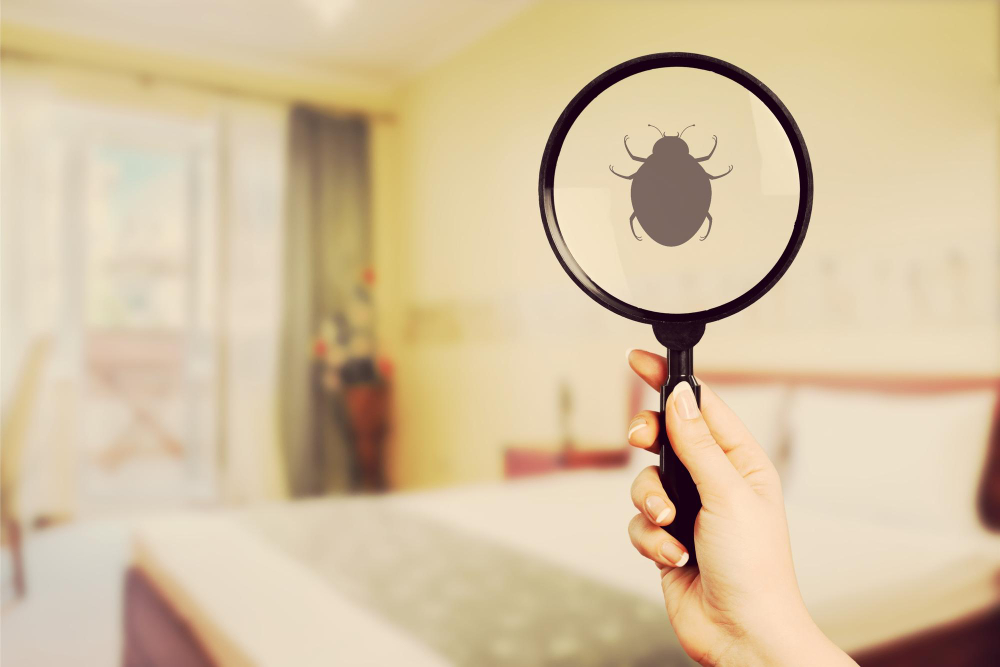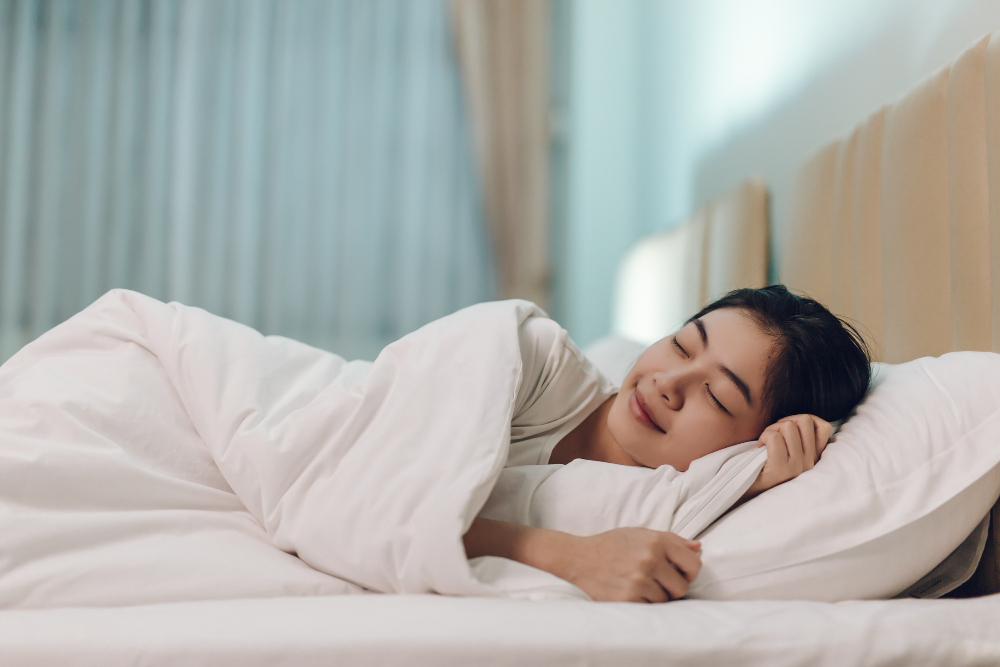With travel becoming increasingly accessible and popular, it’s no surprise that the global issue of bed bugs has also been on the rise. These pesky parasites can turn your peaceful slumber into a nightmare, leaving you with itchy bites and a constant sense of unease. Taiwan, known for its vibrant culture and breathtaking landscapes, is not immune to this problem. And so, learning about the practical ways to get rid of bed bugs is a must for those living in this country.
Whether you’re a local resident or a traveler exploring this beautiful island, learning how to get rid of bed bugs in Taiwan is essential for ensuring a comfortable and stress-free stay. Together, let’s look at the various effective strategies and preventive measures that will help you tackle these unwelcome guests and regain control of your sleep and peace of mind.
Bed Bugs: A Serious Issue to be Addressed in Taiwan
- In recent years, bed bug infestations have been on the rise in many countries around the world, including Taiwan.
- These pests are small, reddish-brown insects that feed on the blood of humans and animals.
- They are often found in bedding, furniture, and clothing, and can be difficult to get rid of once they establish themselves in an area.
Bed bugs are a serious problem in Taiwan, as they can cause a number of health problems for those who are bitten by them.
These insects’ bites can lead to itching, swelling, and redness.
If you think you may have bed bugs in your home, it is important to contact a pest control professional to get rid of them as soon as possible.
Bed bugs are not unique to Taiwan; they are a global pest that can be found in various countries, including those in Asia.
For example, Chinese bed bugs, scientifically known as Cimex lectularius L. and Cimex hemipterus F., have been discovered in Asia.

A study conducted by a Chinese university highlighted the prevalence of bed bugs in Hong Kong, emphasizing that they are not limited to families living in crowded subdivided flats.
In fact, a poll conducted by the Hong Kong Observatory revealed that nearly 27% of respondents had been affected by bed bug infestations.
Japan is another country in Asia where bed bugs can be found in various locations, including Hokkaido, Kyushu, and urban areas.
While they are commonly associated with inexpensive hotels frequented by foreign tourists, bed bugs are also prevalent in low-cost hostels and hotel rooms where only Japanese residents stay.
Considering the widespread presence of bed bugs in Taiwan and other Asian countries, it is crucial to be vigilant and take appropriate measures to prevent and eradicate these pests.
Step-by-Step Guide on Getting Rid of Bed Bugs
Step 1: De-clutter the room
- Start by removing any unnecessary items from the infested room.
- Dispose of them in plastic bags and throw them away.
- For items you need to temporarily move out of the room, place them in a plastic bin with a tight-fitting lid.
Step 2: Wash bedding and clothing
- Launder all bedding and clothing at high temperatures.
- Store them in plastic bags or bins to prevent re-infestation.
- If something cannot be laundered, consider taking it to a dry cleaner or using a high heat setting in the dryer for at least 15 minutes.
Step 3: Store washed items properly
- As soon as you remove the laundered items from the dryer, place them in plastic bins with tight-fitting lids or use plastic, zippered, or resealable bags.
- Keep these containers closed whenever you are not handling the items and store them away from the infested room.
Step 5: Vacuum thoroughly

- Vacuum all surfaces several times a week, including box springs, carpets, curtains, mattresses, upholstered items, furniture, hardwood floors, and baseboards.
- Pay attention to nooks and crannies where bed bugs can hide.
Step 6: Properly dispose of the vacuum cleaner bag
- After vacuuming, remove the bag from the vacuum cleaner and seal it in a plastic bag.
- Tie the plastic bag tightly and dispose of it immediately outside your house to prevent another infestation.
Step 7: Consider using a steam cleaner
- Use a steam cleaner that reaches a temperature of at least 200°F (93.4°C) and produces dry steam.
- This can help eliminate bed bugs effectively, but be cautious not to leave everything soaking wet to avoid mold and mildew issues.
Step 8: Remove unsalvageable items
- If any items are beyond saving, get rid of them.
- Tear off the covers of upholstered furniture and mark infested pieces clearly with signs indicating they are infested with bed bugs.
- Arrange for their proper disposal with your local authorities to prevent others from unintentionally inheriting your bed bug infestation.
Using Natural Remedies to Prevent Bed Bugs Infestation
- Utilize herbs: Bed bugs dislike the smell of certain herbs like eucalyptus, lavender, mint, and rosemary. Hang bundles of these herbs in your wardrobe or place sachets containing them in your dresser and linen closet.
- Try essential oils: Citronella, eucalyptus, lavender, mint, and rosemary essential oils are effective against bed bugs. Rub essential oil onto your bed frame, add a few drops to your laundry when washing bedding, or make a spray by mixing a few drops of essential oil with water in a spray bottle and use it on bedding, carpet, and linens.
- Use diatomaceous earth: Sprinkle pesticide-grade diatomaceous earth around your room, including doorways and window sills. This natural powder, made from diatoms, acts like shattered glass to bed bugs, eliminating them and acting as a deterrent. Avoid using pool or food-grade diatomaceous earth as it can be harmful.
- Employ dryer sheets: Place 8 to 10 dryer sheets between the box spring and mattress, as well as underneath your bed sheets. The strong smell of the dryer sheets will repel bed bugs. Consider using lavender-scented dryer sheets as bed bugs particularly dislike lavender.
- Invest in non-permeable mattress and pillow covers: Purchase mattress and pillow covers without any seams or crannies where bed bugs can hide. These covers are easy to wash and prevent bed bugs from infesting your pillows and mattress.
- Use bug interceptors: Install bug interceptors beneath all four feet of your bed frame. These devices prevent bed bugs from crawling onto your bed. If bug interceptors are not available, place plastic bowls or dishes beneath each bed leg, filled with soapy water to drown any bed bugs attempting to climb up.
By following these step-by-step instructions, you can effectively combat bed bug infestations in Taiwan. Remember, if the infestation persists or worsens, it is advisable to seek professional pest control assistance for thorough eradication.
If you suspect the presence of bed bugs in your home, it is crucial to promptly reach out to a pest control professional for effective eradication.
Bed bug infestations can be challenging to handle on your own, and seeking professional assistance will ensure a thorough and efficient removal process.
Don’t hesitate to contact experts to eliminate bed bugs and restore a pest-free environment in your home.
Benefits of Hiring a Pest Control Service
Dealing with pests can be a frustrating and challenging experience.
Whether you are facing a termite infestation, a rodent problem, or battling against bed bugs, seeking the assistance of a professional pest control service can provide numerous benefits.
Here are some key advantages of hiring a pest control service:
- Effective and Customized Solutions: Pest control professionals are trained and experienced in identifying the specific pests and implementing tailored solutions to address the problem. They possess in-depth knowledge of pest behavior, biology, and habits, allowing them to devise effective strategies for elimination. By analyzing the unique circumstances of your situation, they can customize treatment plans to effectively tackle the pest infestation at its source.
- Expertise and Experience: Pest control technicians undergo extensive training to acquire the necessary skills and expertise in pest management. They are well-versed in the latest techniques, equipment, and products used in the industry. Their experience in dealing with various types of pests enables them to handle infestations efficiently and safely. Professionals can also provide valuable insights and recommendations to prevent future pest issues.
- Health and Safety: Pest infestations can pose significant health risks to you, your family, and your pets. Some pests, such as rodents and cockroaches, carry diseases and allergens that can compromise your well-being. Pest control services employ safe and eco-friendly methods to eliminate pests without endangering your health or causing harm to the environment. They have access to approved pesticides and know how to handle them responsibly, ensuring the safety of everyone involved.
- Cost-Effectiveness: While it may seem tempting to tackle a pest problem yourself, the expenses can quickly add up. DIY methods often require multiple attempts, purchasing various products, and investing time and effort. In contrast, hiring a pest control service can be more cost-effective in the long run. Professionals can quickly identify the root cause of the infestation, implement efficient treatments, and provide ongoing monitoring to prevent future outbreaks. By addressing the problem effectively from the start, you can avoid the potential costs of extensive damage and repeated treatments.
- Time and Convenience: Pest control requires thorough inspections, treatments, and follow-ups, which can be time-consuming and demanding. By entrusting the task to a professional service, you save valuable time and effort that can be allocated to other important aspects of your life. Pest control technicians are equipped with the necessary tools and resources to complete the job efficiently, allowing you to resume your daily routine with minimal disruption.
- Long-Term Prevention: A reputable pest control service does more than just eliminate pests; they also focus on long-term prevention. Professionals can identify vulnerabilities in your property that may attract pests and offer guidance on implementing preventive measures. This proactive approach helps minimize the risk of future infestations, saving you from potential headaches and expenses down the line.
Summary
As travel becomes more accessible and bed bug infestations increase globally, it’s crucial to address the issue in Taiwan.
Bed bugs can disrupt your sleep and cause discomfort, making it essential to learn how to eliminate them.
Whether you’re a resident or a traveler in Taiwan, understanding how to get rid of bed bugs is vital for a comfortable and worry-free experience.
READ NEXT: Visit Taiwan this 2023: 25 Things to Know

